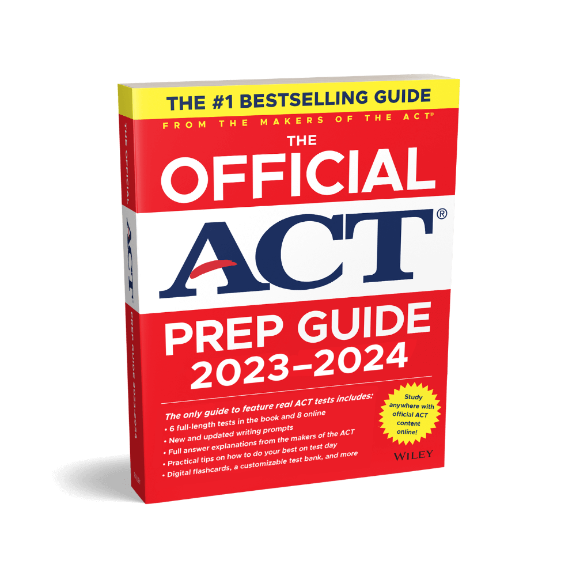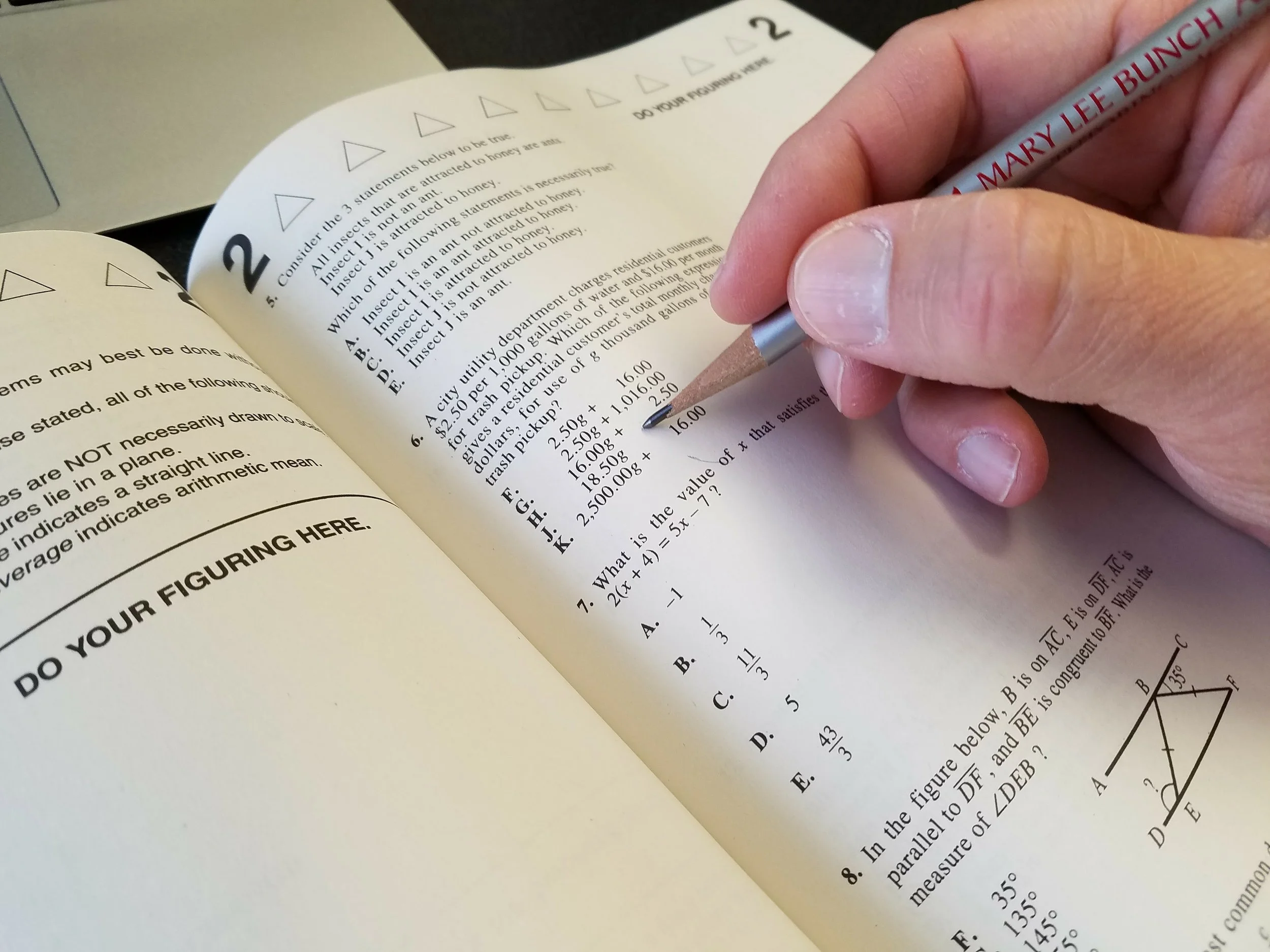Act Preparation : Master the Test with These Expert Strategies
- Update Time : Wednesday, May 1, 2024

Act Preparation involves studying and practicing skills tested on the ACT exam to achieve higher scores. It is essential for college-bound students to improve their performance through focused preparation.
By dedicating time and effort to mastering the content and strategies needed for success, students can increase their chances of achieving their desired scores. Effective ACT preparation includes familiarizing oneself with the test format, practicing with official practice tests, and seeking guidance from tutors or online resources.
With proper preparation, students can boost their confidence and readiness for the ACT exam, leading to improved outcomes and college opportunities.

Credit: www.act.org
Understanding The Act Test
The ACT test is a crucial step for high school students who are preparing for their college journey. Understanding the ACT test is essential to excel in it, and this includes knowing its sections and scoring system.
Sections Of The Act
The ACT test comprises four main sections: English, Mathematics, Reading, and Science. Each section evaluates different academic skills and knowledge, providing a comprehensive assessment of a student’s readiness for college. Additionally, the ACT includes an optional Writing section, which some colleges may require.
Scoring System Of The Act
The ACT test is scored on a scale of 1 to 36 for each of the four required sections, and the scores are averaged to obtain the overall composite score. The optional Writing section is scored separately on a scale of 2 to 12. Understanding the scoring system is crucial for students to gauge their performance accurately and identify areas for improvement.
Creating A Study Plan
Creating a study plan for ACT preparation is crucial for success. A well-structured plan will help you stay organized, focused, and on track to achieve your desired score. In this section, we will delve into the essential steps for creating an effective study plan, including setting goals, utilizing study resources, and staying motivated throughout the process.
Setting Goals For Act Preparation
Setting clear and achievable goals is the first step in creating a study plan for the ACT. Determine the score you aim to achieve and break it down into smaller, manageable targets. Identify the specific areas of the test where you need improvement, whether it’s English, math, reading, or science. Establish a realistic timeline for your preparation, considering the test date and the amount of time you have available to study.
Utilizing Study Resources Effectively
Effective utilization of study resources is essential for optimizing your ACT preparation. Explore a variety of study materials, including ACT prep books, online practice tests, and educational websites. Create a study schedule that incorporates these resources, allocating dedicated time for each subject and practice exams. Seek guidance from teachers, tutors, or peers, and make use of their expertise to enhance your understanding of the test content.
Effective Test-taking Strategies
Mastering effective test-taking strategies is crucial for success on the ACT exam. By implementing these strategies, you can optimize your performance and achieve your desired score.
Time Management Tips During The Test
Time management is key to completing the ACT exam within the allocated time frame. Here are some useful tips:
- Start with questions you find easy to gain momentum.
- Keep an eye on the clock to allocate time wisely for each section.
- Don’t spend too much time on a single question; skip and come back if needed.
- Use any remaining time to review and double-check your answers.
Approaches For Different Question Types
Each question type on the ACT requires a specific approach to ensure accuracy and efficiency. Tailor your strategies based on the question types:
- Reading: Skim passages first, then delve into details when answering questions.
- Math: Work through problems systematically, showing all your steps for easier review.
- English: Focus on grammar rules and context to eliminate incorrect answer choices.
- Science: Interpret graphs and data before tackling the questions for a clearer understanding.
By implementing these test-taking strategies, you can approach the ACT exam with confidence and maximize your chances of achieving a high score.
Mastering Each Act Section
When preparing for the ACT, it’s essential to focus on mastering each section to achieve the best possible score. Each section – English, Math, Reading, and Science – requires specific strategies and tactics to excel.
Strategies For English Section
- Focus on grammar rules and punctuation.
- Practice reading and analyzing passages quickly.
- Use context clues to determine the meaning of words.
Tactics For Math Section
- Understand key math concepts and formulas.
- Solve problems systematically and efficiently.
- Practice using a calculator effectively.
Approaches For Reading Section
- Skim passages to get a general idea before answering questions.
- Identify main ideas, themes, and supporting details.
- Utilize the process of elimination for multiple-choice questions.
Tips For Science Section
- Focus on data interpretation and analysis.
- Practice reading charts, graphs, and tables quickly.
- Understand experimental design and scientific reasoning.
Utilizing Practice Tests
Practice tests are essential tools in preparing for the ACT exam. They offer numerous benefits to students, from identifying weak areas to improving time management skills.
Benefits Of Taking Practice Tests
- Identify weak areas
- Improve time management skills
- Build confidence
- Familiarize with the test format
- Reduce test anxiety
How To Analyze Practice Test Results
- Review incorrect answers
- Identify recurring mistakes
- Understand the reasoning behind correct answers
- Track progress over time
- Adjust study strategies accordingly

Credit: www.target.com
Overcoming Test Anxiety
Test anxiety is a common experience for students who are preparing for ACT. It can lead to negative thoughts, panic, and physical symptoms such as sweating and nausea. Overcoming test anxiety is crucial to ensure that you perform to the best of your ability on test day. Here are some techniques to manage test anxiety and prepare mentally for the test day:
Techniques To Manage Test Anxiety
There are several techniques that you can use to manage your test anxiety:
- Deep breathing exercises: Taking deep breaths can help you calm down and reduce your anxiety levels.
- Positive self-talk: Replace negative thoughts with positive affirmations, such as “I am prepared and capable of doing well on this test.”
- Visualization: Visualize yourself performing well on the test and achieving your desired score.
- Time management: Develop a time management strategy for the test to avoid feeling rushed or overwhelmed.
By incorporating these techniques into your test preparation routine, you can reduce your anxiety levels and feel more confident on test day.
Preparing Mentally For The Test Day
Preparing mentally for the test day is just as important as preparing academically. Here are some tips to help you get mentally ready for the ACT:
- Get enough rest: Make sure you get enough sleep the night before the test to ensure that you are well-rested and alert.
- Eat a healthy breakfast: Fuel your brain and body with a nutritious breakfast to help you stay focused and energized during the test.
- Arrive early: Give yourself plenty of time to get to the test center so that you are not rushed or stressed.
- Stay positive: Keep a positive attitude and believe in yourself. Remember that you have prepared well and are ready for the test.
By following these tips and techniques, you can overcome test anxiety and prepare yourself mentally for the ACT. Remember that test anxiety is a normal experience, and with the right strategies and mindset, you can perform to the best of your ability on test day.
Final Tips And Recommendations
Keep a positive mindset and reward yourself for small achievements.
Don’t hesitate to ask questions and utilize available resources.

Credit: www.maryleebunch.com
Frequently Asked Questions
Is A 30 On The Act Hard?
Achieving a 30 on the ACT can be challenging but attainable with focused preparation and practice.
Is Act Harder Than Sat?
The difficulty of the ACT and SAT exams varies for each student. While the ACT has a stronger focus on science and math, the SAT has more emphasis on vocabulary and reading comprehension. It is best to take practice tests for both exams and see which one suits your strengths better.
What Should I Do To Prepare For The Act?
To prepare for the ACT, focus on practice tests, review content areas, improve time management, and seek help if needed.
How Long Does It Take To Prepare For Act?
It typically takes 1-3 months to prepare for the ACT exam, depending on individual study habits and goals.
Conclusion
Preparing for the ACT can seem daunting, but with the right approach, it can be manageable. Remember to set clear goals, develop a study plan, and take advantage of available resources such as online practice tests and tutoring services. Additionally, it’s important to stay positive and believe in your abilities.
With hard work and dedication, you can achieve success on the ACT and open up opportunities for your future. Good luck!


















Leave a Reply